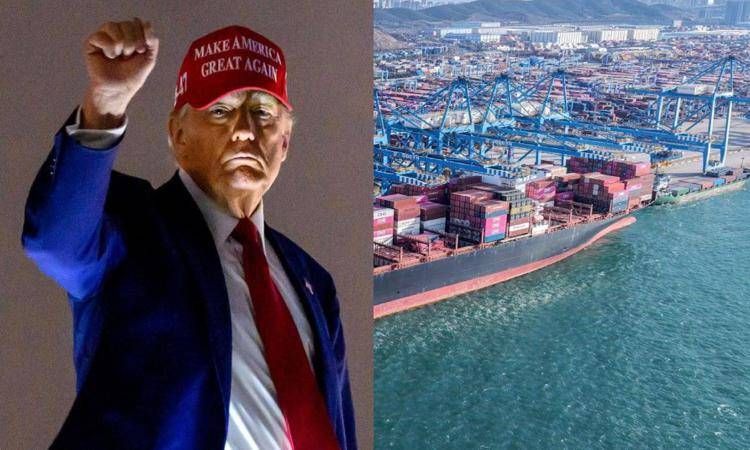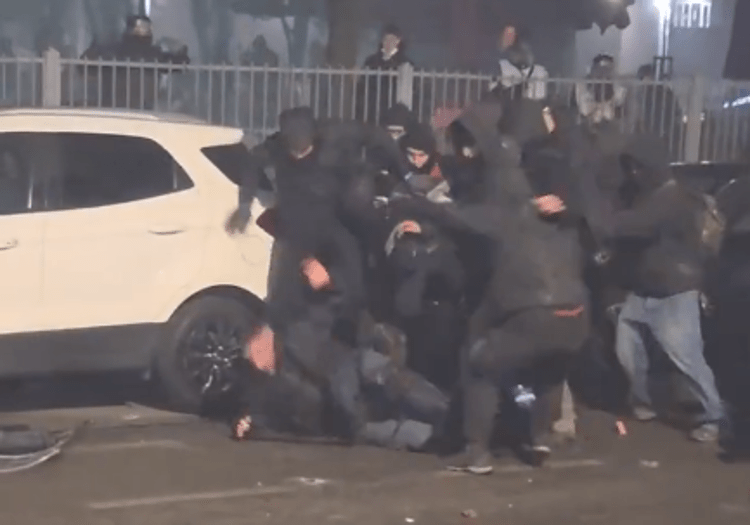
Federal court rejects Trump tariffs: ‘Abuse of presidential power’, what can happen now
A historic ruling by the Court of International Trade declares the tariffs imposed by the US president illegal: immediate halt to tariffs on over 75 countries, including China, Mexico and Canada. The case was brought by a small winery in New York
A historic ruling has thrown Donald Trump’s trade strategy into crisis. After months of international tensions and losses on global markets, the Court of International Trade in New York has ruled that the tariffs imposed by the US president are illegal, as they constitute an abuse of presidential powers under the Emergency Economic Powers Act (IEEPA). The decision has provoked a furious reaction from the White House, which has openly spoken of a “judicial coup” and has already filed an appeal through the Department of Justice.
Immediate halt to two groups of tariffs
The ruling blocks the global tariffs introduced on 2 April, during the so-called “Liberation Day”, which imposed a 10% tariff on imports from almost the entire world. Trump had initially planned a more severe package for dozens of countries, but then postponed it for more than 75 countries in July in an attempt to encourage negotiations.
Punitive tariffs on China, which had reached 145% before being scaled back after bilateral talks in mid-May, have also been blocked, as have the 25% tariffs on Canada and Mexico, officially motivated by issues related to immigration and drug trafficking, and the 20% tariffs still against Beijing for its role in the production of fentanyl.
‘Abused emergency powers’
In their ruling, the judges clarified that the 1977 law cannot be used to impose unlimited tariffs, nor does it grant “unchecked authority” to the president. The appeal was filed by 12 Democratic-led states and five companies that claimed to have been economically harmed by Trump’s trade policies.
However, tariffs on steel, aluminium and cars, imposed under the 1962 trade law, which was not involved in the ruling, remain in force.
Markets rise, but uncertainty remains
The news immediately sent US markets soaring, with positive reactions also in Europe and Asia. However, experts urge caution. ‘We cannot yet speak of a definitive victory,’ warns economist Joseph Steinberg, pointing out that the Trump administration will try other ways to maintain its tariff agenda. The case could end up in the Supreme Court.
The key role of a small winery
The successful appeal was led by Vos Selection, a small New York wine importer run by Viktor Schwartz and his daughter Chloe. The company, which works with producers from 16 countries, saw the tariffs as an existential threat to its business. ‘We are not a large company, we could not survive,’ said Schwartz, who entrusted the case to the Liberty Justice Centre, a libertarian group active in the legal field.
‘I just wanted to import good wines, not challenge the US government,’ the entrepreneur told CNN. But now, after the ruling, he says he is confident that the battle will continue all the way to the Supreme Court to defend small American businesses.
THE LATEST NEWS
(Photo: © AndKronos)
-

 Salute14 ore ago
Salute14 ore agoAlzheimer, dalla WashU un test sangue predittivo
-

 Primo Piano13 ore ago
Primo Piano13 ore agoCrans-Montana, italiani feriti raccontano: porte sbarrate e fuga proprietaria
-

 In Evidenza15 ore ago
In Evidenza15 ore agoTrump: pubblicare i file su Ufo e vita aliena
-

 Spettacolo13 ore ago
Spettacolo13 ore agoAddio ad Angela Luce, icona di cinema, teatro e musica napoletana



















